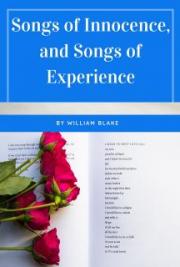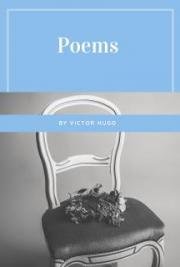Michael Angelo
Dedication....................................................................................................................................3
Part First......................................................................................................................................4
Part Second...............................................................................................................................42
Part Third...................................................................................................................................71
Dedication
Similamente operando all' artista ch' a l'abito dell' arte e man che trema.
-- DANTE, Par. xiii., st. 77.
DEDICATION.
Nothing that is shall perish utterly,
But perish only to revive again
In other forms, as clouds restore in rain
The exhalations of the land and sea.
Men build their houses from the masonry
Of ruined tombs; the passion and the pain Of hearts, that long have ceased to beat, remain To throb in hearts that are, or are to be.
So from old chronicles, where sleep in dust Names that once filled the world with trumpet tones, I build this verse; and flowers of song have thrust
Their roots among the loose disjointed stones, Which to this end I fashion as I must.
Quickened are they that touch the Prophet's bones.
Part First
I.
PROLOGUE AT ISCHIA
The Castle Terrace. VITTORIA COLONNA, and JULIA GONZAGA.
VITTORIA.
Will you then leave me, Julia, and so soon, To pace alone this terrace like a ghost?
JULIA.
To-morrow, dearest.
VITTORIA.
Do not say to-morrow.
A whole month of to-morrows were too soon.
You must not go. You are a part of me.
JULIA.
I must return to Fondi.
VITTORIA. The old castle
Needs not your presence. No one waits for you.
Stay one day longer with me. They who go
Feel not the pain of parting; it is they
Who stay behind that suffer. I was thinking
But yesterday how like and how unlike
Have been, and are, our destinies. Your husband,
The good Vespasian, an old man, who seemed
A father to you rather than a husband,
Died in your arms; but mine, in all the flower
And promise of his youth, was taken from me
As by a rushing wind. The breath of battle
Breathed on him, and I saw his face no more,
Save as in dreams it haunts me. As our love
Was for these men, so is our sorrow for them.
Yours a child's sorrow, smiling through its tears;
But mine the grief of an impassioned woman,
Who drank her life up in one draught of love. JULIA.
Behold this locket. This is the white hair Of my Vespasian. This is the flower-of-love, This amaranth, and beneath it the device Non moritura. Thus my heart remains True to his memory; and the ancient castle, Where we have lived together, where he died, Is dear to me as Ischia is to you.
VITTORIA.
I did not mean to chide you.
JULIA. Let your heart
Find, if it can, some poor apology
For one who is too young, and feels too keenly
The joy of life, to give up all her days
To sorrow for the dead. While I am true
To the remembrance of the man I loved
And mourn for still, I do not make a show
Of all the grief I feel, nor live secluded
And, like Veronica da Gambara,
Drape my whole house in mourning, and drive forth
In coach of sable drawn by sable horses,
As if I were a corpse. Ah, one to-day
Is worth for me a thousand yesterdays.
VITTORIA.
Dear Julia! Friendship has its jealousies As well as love. Who waits for you at Fondi?
JULIA.
A friend of mine and yours; a friend and friar. You have at Naples your Fra Bernadino; And I at Fondi have my Fra Bastiano, The famous artist, who has come from Rome To paint my portrait. That is not a sin.
VITTORIA.
Only a vanity.
JULIA.
He painted yours.
VITTORIA.
Do not call up to me those days departed When I was young, and all was bright about me, And the vicissitudes of life were things
But to be read of in old histories,
Though as pertaining unto me or mine
Impossible. Ah, then I dreamed your dreams, And now, grown older, I look back and see They were illusions.
JULIA.
Yet without illusions
What would our lives become, what we ourselves?
Dreams or illusions, call them what you will,
They lift us from the commonplace of life
To better things.
VITTORIA.
Are there no brighter dreams, No higher aspirations, than the wish To please and to be pleased?
JULIA. For you there are;
I am no saint; I feel the world we live in
Comes before that which is to be here after,
And must be dealt with first.
VITTORIA. But in what way?
JULIA.
Let the soft wind that wafts to us the odor Of orange blossoms, let the laughing sea And the bright sunshine bathing all the world, Answer the question.
VITTORIA.
And for whom is meant
This portrait that you speak of?
JULIA. For my friend
The Cardinal Ippolito.
VITTORIA. For him? JULIA
Yes, for Ippolito the Magnificent. 'T is always flattering to a woman's pride To be admired by one whom all admire.
VITTORIA.
Ah, Julia, she that makes herself a dove Is eaten by the hawk. Be on your guard, He is a Cardinal; and his adoration Should be elsewhere directed.
JULIA. You forget
The horror of that night, when Barbarossa,
The Moorish corsair, landed on our coast
To seize me for the Sultan Soliman;
How in the dead of night, when all were sleeping,
He scaled the castle wall; how I escaped,
And in my night-dress, mounting a swift steed,
Fled to the mountains, and took refuge there
Among the brigands. Then of all my friends
The Cardinal Ippolito was first
To come with his retainers to my rescue.
Could I refuse the only boon he asked
At such a time, my portrait?
VITTORIA. I have heard
Strange stories of the splendors of his palace,
And how, apparelled like a Spanish Prince,
He rides through Rome with a long retinue
Of Ethiopians and Numidians
And Turks and Tartars, in fantastic dresses,
Making a gallant show. Is this the way
A Cardinal should live?
JULIA. He is so young;
Hardly of age, or little more than that;
Beautiful, generous, fond of arts and letters,
A poet, a musician, and a scholar;
Master of many languages, and a player
On many instruments. In Rome, his palace
Is the asylum of all men distinguished
In art or science, and all Florentines Escaping from the tyranny of his cousin, Duke Alessandro.
VITTORIA.
I have seen his portrait,
Painted by Titian. You have painted it
In brighter colors.
JULIA. And my Cardinal,
At Itri, in the courtyard of his palace,
Keeps a tame lion!
VITTORIA. And so counterfeits
St. Mark, the Evangelist!
JULIA. Ah, your tame lion
Is Michael Angelo.
VITTORIA. You speak a name
That always thrills me with a noble sound,
As of a trumpet! Michael Angelo!
A lion all men fear and none can tame;
A man that all men honor, and the model
That all should follow; one who works and prays,
For work is prayer, and consecrates his life
To the sublime ideal of his art,
Till art and life are one; a man who holds
Such place in all men's thoughts, that when they speak
Of great things done, or to be done, his name
Is ever on their lips.
JULIA.
You too can paint
The portrait of your hero, and in colors
Brighter than Titian's; I might warn you also
Against the dangers that beset your path;
But I forbear.
VITTORIA.
If I were made of marble,
Of Fior di Persico or Pavonazzo,
He might admire me: being but flesh and blood, I am no more to him than other women; That is, am nothing.
JULIA.
Does he ride through Rome
Upon his little mule, as he was wont,
With his slouched hat, and boots of Cordovan,
As when I saw him last?
VITTORIA. Pray do not jest.
I cannot couple with his noble name
A trivial word! Look, how the setting sun
Lights up Castel-a-mare and Sorrento,
And changes Capri to a purple cloud!
And there Vesuvius with its plume of smoke,
And the great city stretched upon the shore
As in a dream!
JULIA.
Parthenope the Siren!
VITTORIA.
And yon long line of lights, those sunlit windows Blaze like the torches carried in procession To do her honor! It is beautiful!
JULIA.
I have no heart to feel the beauty of it! My feet are weary, pacing up and down These level flags, and wearier still my thoughts Treading the broken pavement of the Past, It is too sad. I will go in and rest,
And make me ready for to-morrow's journey.
VITTORIA.
I will go with you; for I would not lose
One hour of your dear presence. 'T is enough Only to be in the same room with you. I need not speak to you, nor hear you speak; If I but see you, I am satisfied.
[They go in.
MONOLOGUE: THE LAST JUDGMENT MICHAEL ANGELO's Studio. He is at work on the cartoon of the Last Judgment.
MICHAEL ANGELO.
Why did the Pope and his ten Cardinals
Come here to lay this heavy task upon me?
Were not the paintings on the Sistine ceiling
Enough for them? They saw the Hebrew leader Waiting, and clutching his tempestuous beard, But heeded not. The bones of Julius
Shook in their sepulchre. I heard the sound; They only heard the sound of their own voices.
Are there no other artists here in Rome
To do this work, that they must needs seek me? Fra Bastian, my Era Bastian, might have done it; But he is lost to art. The Papal Seals,
Like leaden weights upon a dead man's eyes, Press down his lids; and so the burden falls
On Michael Angelo, Chief Architect
And Painter of the Apostolic Palace.
That is the title they cajole me with,
To make me do their work and leave my own; But having once begun, I turn not back.
Blow, ye bright angels, on your golden trumpets To the four corners of the earth, and wake
The dead to judgment! Ye recording angels, Open your books and read? Ye dead awake! Rise from your graves, drowsy and drugged with death, As men who suddenly aroused from sleep
Look round amazed, and know not where they are!
In happy hours, when the imagination
Wakes like a wind at midnight, and the soul
Trembles in all its leaves, it is a joy
To be uplifted on its wings, and listen
To the prophetic voices in the air
That call us onward. Then the work we do
Is a delight, and the obedient hand
Never grows weary. But how different is it
En the disconsolate, discouraged hours,
When all the wisdom of the world appears
As trivial as the gossip of a nurse
In a sick-room, and all our work seems useless, What is it guides my hand, what thoughts possess me, That I have drawn her face among the angels, Where she will be hereafter? O sweet dreams, That through the vacant chambers of my heart Walk in the silence, as familiar phantoms
Frequent an ancient house, what will ye with me? 'T is said that Emperors write their names in green When under age, but when of age in purple. So Love, the greatest Emperor of them all,
Writes his in green at first, but afterwards
In the imperial purple of our blood.
First love or last love,--which of these two passions Is more omnipotent? Which is more fair,
The star of morning or the evening star?
The sunrise or the sunset of the heart?
The hour when we look forth to the unknown, And the advancing day consumes the shadows, Or that when all the landscape of our lives
Lies stretched behind us, and familiar places Gleam in the distance, and sweet memories Rise like a tender haze, and magnify
The objects we behold, that soon must vanish?
What matters it to me, whose countenance
Is like the Laocoon's, full of pain; whose forehead Is a ploughed harvest-field, where three-score years Have sown in sorrow and have reaped in anguish; To me, the artisan, to whom all women
Have been as if they were not, or at most
A sudden rush of pigeons in the air,
A flutter of wings, a sound, and then a silence? I am too old for love; I am too old
To flatter and delude myself with visions
Of never-ending friendship with fair women, Imaginations, fantasies, illusions,
In which the things that cannot be take shape, And seem to be, and for the moment are.
[Convent bells ring.
Distant and near and low and loud the bells, Dominican, Benedictine, and Franciscan, Jangle and wrangle in their airy towers, Discordant as the brotherhoods themselves In their dim cloisters. The descending sun Seems to caress the city that he loves, And crowns it with the aureole of a saint. I will go forth and breathe the air a while.
II.
SAN SILVESTRO
A Chapel in the Church of San Silvestra on Monte Cavallo.
VITTORIA COLONNA, CLAUDIO TOLOMMEI, and others.
VITTORIA.
Here let us rest a while, until the crowd Has left the church. I have already sent For Michael Angelo to join us here.
MESSER CLAUDIO.
After Fra Bernardino's wise discourse On the Pauline Epistles, certainly
Some words of Michael Angelo on Art Were not amiss, to bring us back to earth.
MICHAEL ANGELO, at the door.
How like a Saint or Goddess she appears; Diana or Madonna, which I know not! In attitude and aspect formed to be At once the artist's worship and despair!
VITTORIA.
Welcome, Maestro. We were waiting for you.
MICHAEL ANGELO.
I met your messenger upon the way, And hastened hither.
VITTORIA. It is kind of you
To come to us, who linger here like gossips
Wasting the afternoon in idle talk.
These are all friends of mine and friends of yours.
MICHAEL ANGELO.
If friends of yours, then are they friends of mine. Pardon me, gentlemen. But when I entered I saw but the Marchesa.
VITTORIA. Take this seat Between me and Ser Claudio Tolommei, Who still maintains that our Italian tongue Should be called Tuscan. But for that offence We will not quarrel with him.
MICHAEL ANGELO.
Eccellenza--
VITTORIA.
Ser Claudio has banished Eccellenza And all such titles from the Tuscan tongue.
MESSER CLAUDIO.
'T is the abuse of them and not the use I deprecate.
MICHAEL ANGELO.
The use or the abuse
It matters not. Let them all go together,
As empty phrases and frivolities,
And common as gold-lace upon the collar
Of an obsequious lackey.
VITTORIA.
That may be,
But something of politeness would go with them;
We should lose something of the stately manners
Of the old school.
MESSER CLAUDIO. Undoubtedly.
VITTORlA. But that
Is not what occupies my thoughts at present,
Nor why I sent for you, Messer Michele.
It was to counsel me. His Holiness
Has granted me permission, long desired,
To build a convent in this neighborhood,
Where the old tower is standing, from whose top
Nero looked down upon the burning city.
MICHAEL ANGELO. It is an inspiration!
VITTORIA. I am doubtful How I shall build; how large to make the convent, And which way fronting.
MICHAEL ANGELO.
Ah, to build, to build!
That is the noblest art of all the arts.
Painting and sculpture are but images,
Are merely shadows cast by outward things
On stone or canvas, having in themselves
No separate existence. Architecture,
Existing in itself, and not in seeming
A something it is not, surpasses them
As substance shadow. Long, long years ago,
Standing one morning near the Baths of Titus,
I saw the statue of Laocoon
Rise from its grave of centuries, like a ghost
Writhing in pain; and as it tore away
The knotted serpents from its limbs, I heard,
Or seemed to hear, the cry of agony
From its white, parted lips. And still I marvel
At the three Rhodian artists, by whose hands
This miracle was wrought. Yet he beholds
Far nobler works who looks upon the ruins
Of temples in the Forum here in Rome.
If God should give me power in my old age
To build for Him a temple half as grand
As those were in their glory, I should count
My age more excellent than youth itself,
And all that I have hitherto accomplished
As only vanity.
VITTORIA.
I understand you.
Art is the gift of God, and must be used
Unto His glory. That in art is highest
Which aims at this. When St. Hilarion blessed
The horses of Italicus, they won
The race at Gaza, for his benediction
O'erpowered all magic; and the people shouted
That Christ had conquered Marnas. So that art
Which bears the consecration and the seal
Of holiness upon it will prevail
Over all others. Those few words of yours
Inspire me with new confidence to build. What think you? The old walls might serve, perhaps, Some purpose still. The tower can hold the bells.
MICHAEL ANGELO. If strong enough.
VITTORIA.
If not, it can be strengthened.
MICHAEL ANGELO.
I see no bar nor drawback to this building, And on our homeward way, if it shall please you, We may together view the site.
VITTORIA. I thank you.
I did not venture to request so much.
MICHAEL ANGELO.
Let us now go to the old walls you spake of, Vossignoria-
VITTORIA.
What, again, Maestro?
MICHAEL ANGELO.
Pardon me, Messer Claudio, if once more I use the ancient courtesies of speech. I am too old to change.
III.
CARDINAL IPPOLITO.
A richly furnished apartment in the Palace of CARDINAL IPPOLITO. Night.
JACOPO NARDI, an old man, alone.
NARDI.
I am bewildered. These Numidian slaves, In strange attire; these endless ante-chambers; This lighted hall, with all its golden splendors, Pictures, and statues! Can this be the dwelling Of a disciple of that lowly Man
Who had not where to lay his head? These statues Are not of Saints; nor is this a Madonna,
This lovely face, that with such tender eyes Looks down upon me from the painted canvas. My heart begins to fail me. What can he
Who lives in boundless luxury at Rome
Care for the imperilled liberties of Florence, Her people, her Republic? Ah, the rich
Feel not the pangs of banishment. All doors Are open to them, and all hands extended, The poor alone are outcasts; they who risked All they possessed for liberty, and lost;
And wander through the world without a friend, Sick, comfortless, distressed, unknown, uncared for.
Enter CARDINAL HIPPOLITO, in Spanish cloak and slouched hat.
IPPOLITO.
I pray you pardon me that I have kept you Waiting so long alone.
NARDI. I wait to see
The Cardinal.
IPPOLITO.
I am the Cardinal.
And you?
NARDI.
Jacopo Nardi.
IPPOLITO.
You are welcome
I was expecting you. Philippo Strozzi
Had told me of your coming.
NARDI. 'T was his son
That brought me to your door.
IPPOLITO.
Pray you, be seated.
You seem astonished at the garb I wear,
But at my time of life, and with my habits,
The petticoats of a Cardinal would be--
Troublesome; I could neither ride nor walk,
Nor do a thousand things, if I were dressed
Like an old dowager. It were putting wine Young as the young Astyanax into goblets As old as Priam.
NARDI. Oh, your Eminence
Knows best what you should wear.
IPPOLITO. Dear Messer Nardi,
You are no stranger to me. I have read
Your excellent translation of the books
Of Titus Livius, the historian
Of Rome, and model of all historians
That shall come after him. It does you honor;
But greater honor still the love you bear
To Florence, our dear country, and whose annals
I hope your hand will write, in happier days
Than we now see.
NARDI.
Your Eminence will pardon
The lateness of the hour.
IPPOLITO.
The hours I count not
As a sun-dial; but am like a clock,
That tells the time as well by night as day.
So no excuse. I know what brings you here.
You come to speak of Florence.
NARDI.
And her woes.
IPPOLITO.
The Duke, my cousin, the black Alessandro, Whose mother was a Moorish slave, that fed The sheep upon Lorenzo's farm, still lives And reigns.
NARDI.
Alas, that such a scourge
Should fall on such a city!
IPPOLITO. When he dies,
The Wild Boar in the gardens of Lorenzo, The beast obscene, should be the monument Of this bad man.
NARDI.
He walks the streets at night
With revellers, insulting honest men.
No house is sacred from his lusts. The convents
Are turned by him to brothels, and the honor
Of women and all ancient pious customs
Are quite forgotten now. The offices
Of the Priori and Gonfalonieri
Have been abolished. All the magistrates
Are now his creatures. Liberty is dead.
The very memory of all honest living
Is wiped away, and even our Tuscan tongue
Corrupted to a Lombard dialect.
IPPOLITO.
And worst of all his impious hand has broken The Martinella,--our great battle bell,
That, sounding through three centuries, has led The Florentines to victory,--lest its voice Should waken in their souls some memory Of far-off times of glory.
NARDI.
What a change
Ten little years have made! We all remember
Those better days, when Niccola Capponi,
The Gonfaloniere, from the windows
Of the Old Palace, with the blast of trumpets,
Proclaimed to the inhabitants that Christ
Was chosen King of Florence; and already
Christ is dethroned, and slain, and in his stead
Reigns Lucifer! Alas, alas, for Florence!
IPPOLITO.
Lilies with lilies, said Savonarola;
Florence and France! But I say Florence only, Or only with the Emperor's hand to help us In sweeping out the rubbish.
NARDI. Little hope
Of help is there from him. He has betrothed His daughter Margaret to this shameless Duke. What hope have we from such an Emperor?
IPPOLITO.
Baccio Valori and Philippo Strozzi,
Once the Duke's friends and intimates are with us, And Cardinals Salvati and Ridolfi.
We shall soon see, then, as Valori says,
Whether the Duke can best spare honest men, Or honest men the Duke.
NARDI.
We have determined
To send ambassadors to Spain, and lay
Our griefs before the Emperor, though I fear
More than I hope.
IPPOLITO.
The Emperor is busy
With this new war against the Algerines,
And has no time to listen to complaints
From our ambassadors; nor will I trust them,
But go myself. All is in readiness
For my departure, and to-morrow morning
I shall go down to Itri, where I meet
Dante da Castiglione and some others,
Re







